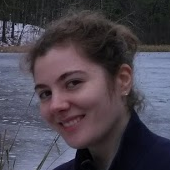
Ella Tuson
Hello and welcome to my website! My name is Ella Tuson and I am currently a PhD Candidate at Brandeis University.
This site is going to be a place where I can keep a record of my work, but it's not quite ready yet! I have begun adding abstracts and links to the papers, starting from the most recent ones.
Research Interests
CS Education, educational technology, accessibility
Publications
Ella Tuson. Applications of Programming as Theory Building in Computer Science Education. In Proceedings of the 2023 Conference on Innovation and Technology in Computer Science Education V. 2 June 2023 Pages 621–622. Association for Computing Machinery
- Get the Paper:
- Access the paper through the ACM Digital Library or email me for a copy.
- Abstract:
- The field of Computer Science has always been one of rapid growth and change. We propose the investigation of Peter Naur's framework of Programming as Theory building as a means to make CS education more resilient to emerging technology and to improve student outcomes by encouraging a focus on internal understanding over the external artifacts of programming.
Ella Tuson and Timothy Hickey. Mastery Learning with Specs Grading for Programming Courses. In Proceedings of the 54th ACM Technical Symposium on Computer Science Education V. 1, SIGCSE 2023, pages 1049–1054, New York, NY, USA, March 2023. Association for Computing Machinery
- Get the Paper:
- Access the paper through the ACM Digital Library or email me for a copy.
- Abstract:
- As professors, we want the students in our classes to succeed in mastering the material that we set out to teach them, but we must balance this desire with the knowledge that we have other responsibilities and a limited number of hours in the day. In this report, we document our implementation of a mastery learning inspired pedagogy using specifications grading in a software engineering course from the spring semester of 2022 in which 142 students were enrolled. Our two main goals with this approach were to reduce the administrative burden of the class with respect to grading and to promote mastery of course material while maintaining academic rigor. We provide evidence that both of these goals were at least partially achieved. In addition to outlining the structure of the course, we identify several areas where there is room for improvement with this approach and provide an overview of an online application we developed to facilitate the course.
Ella Tuson and Tim Hickey. Mastery Learning and Specs Grading in Discrete Math. In Proceedings of the 27th ACM Conference on on Innovation and Technology in Computer Science Education Vol. 1, ITiCSE ’22,
pages 19–25, New York, NY, USA, July 2022. Association for Computing Machinery
- Get the Paper:
- Access the paper through the ACM Digital Library or email me for a copy.
- Abstract:
- This paper presents a case study detailing our experience applying a combination of Mastery Learning and Specs Grading to a section of a Discrete Mathematics course with 128 students. Our principle reason to use this pedagogy was to improve the learning outcomes of our students, so all students would have a good chance of succeeding, regardless of their previous experience. The course was focused on 10 main skill areas. Each week a new skill area was introduced and a quiz for that skill area was provided that week and each week thereafter. The quizzes were graded pass/fail, either they demonstrated complete mastery or they did not. Students who demonstrated mastery were no longer required to take the quizzes on that skill area in later weeks. The amount of extra work required for this approach with regards to grading was roughly twice as much as would have been required with a traditional midterm/final exam structure and three times as much for creating quiz questions. Despite this increase in the number of items that required grading, the overall time spent grading was greatly reduced due to the use of pass/fail grading. The Mastery Learning approach provided a strong incentive for students to attempt to master all of the core skill areas. By the end of the semester, 75% of the students had mastered at least nine of the ten skill areas. In this paper we discuss this approach and its implications for CS courses more generally.
Breanna Desrochers, Ella Tuson, and John Magee. Evaluation of why individuals with adhd struggle to find effective digital time management tools. In The 21st International ACM SIGACCESS Conference on Computersand Accessibility, ASSETS ’19, page 603–605, New York, NY, USA, 2019. Association for Computing Machinery
This will have a description and link to the paper soon!
Syed Asad Rizvi, Ella Tuson, Breanna Desrochers, and John Magee. Simulation of motor impairment in head-controlled pointer fitts’ law task. In Proceedings of the 20th International ACM SIGACCESS Conference on Computers and Accessibility, ASSETS ’18, page 376–378, New York, NY, USA, 2018. Association for Computing Machinery
This will have a description and link to the paper soon!
Ella Tuson, Samantha Hughson, Christina Zymaris, and Ryan King. Participatory design using sensory substitution devices with tactile and audio feedback. In Proceedings of the 19th International ACM SIGACCESS Conference on Computers and Accessibility, ASSETS ’17, page 415–416, New York, NY, USA, 2017. Association for Computing Machinery
This will have a description and link to the paper soon!
